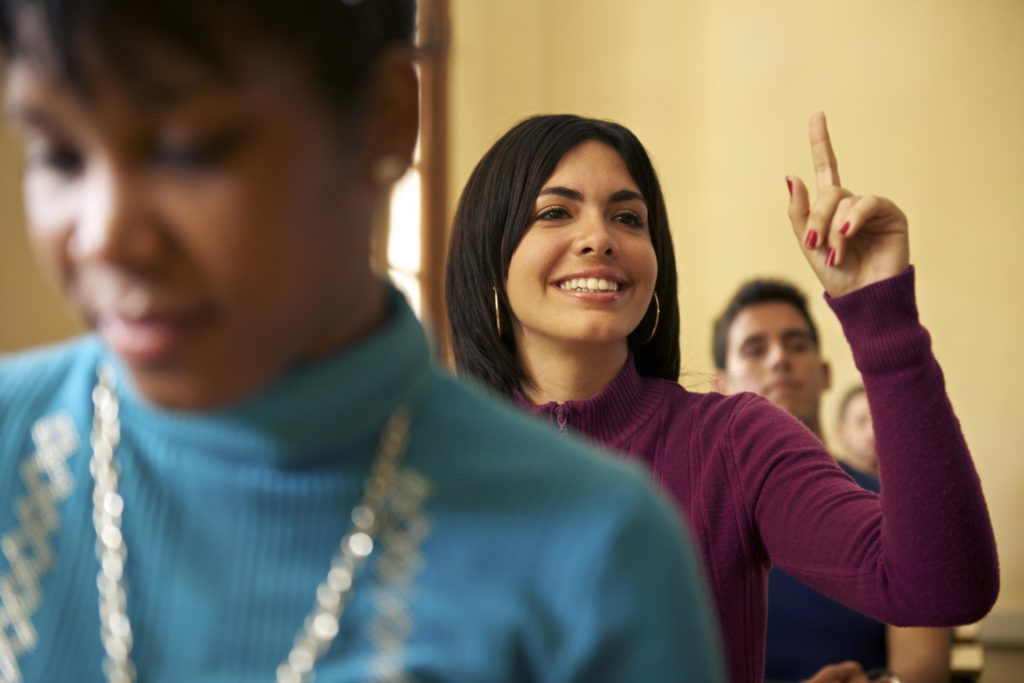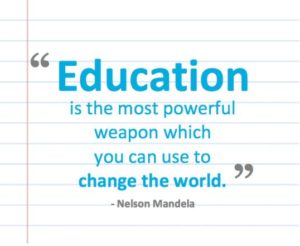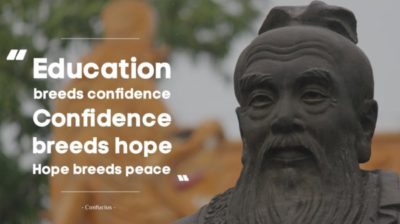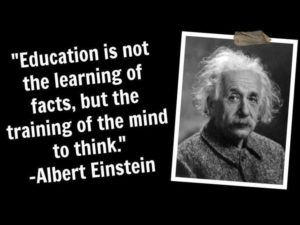
Education broadens our horizons and allows us to appreciate other perspectives. Yet, education is a privilege that is not available to a significant segment of the population. Learn about the importance of education in society and how you can play a part in making it available to others. (Estimated reading time: 6 minutes)
“Establishing lasting peace is the work of education; all politics can do is keep us out at war.”
— Maria Montessori
On July 12 2013, a gathering of nearly 1,000 young people aged from 12-25 from over 100 countries gathered at the United Nations Youth Assembly in New York. One of the speakers that they were being addressed by was a young woman named Malala Yousafzai, one of the many victims who was shot by a Taliban hitman in Pakistan in 2012.
In Malala’s moving and impactful speech, which she delivered in a firm yet compassionate tone, she encouraged world leaders to provide free and mandatory education for every child on the planet. She said:
“We realize the importance of pens and books, when we saw the guns. We realize the importance of light. We realize the importance of our voice when we are silenced.”
Upon saying this, she received standing ovations. She smiled as she continued on to say:
“Let us pick up our books and our pens. They are our most powerful weapons. One child, one teacher, one book and one pen can change the world. Education is the only solution to illiteracy, poverty and terrorism.”
Malala has become a major influencer because of the wisdom that she has gleaned from her terrifying experiences with the Taliban clan in her community. Living under the pressure and subjugation of an extreme regime opened her eyes to the value of education and its capacity to unlock human potential.

The universal right to education has become a major endeavor that’s been prioritized across the globe – in nations, multilateral organizations, NGOs, and other companies working towards raising global standards of living.
In an information age driven by ideas, new technologies and creativity, knowledge has become the most important currency, which makes having an education more important than ever before.
Sadly, there are millions of adults and children who lack access to quality education because of various reasons. Some aren’t allowed to attend school because they’re girls or because their families need them to work to support the family, or because they live in conflict zones.
Studies show that 59 million school-age kids are being denied an education, and 65 million don’t have access to a secondary school.
A collective effort is needed if we are to make education more accessible to every person in the world, because it’s the key to promoting the understanding of social justice, health issues, and eradicating global poverty. A mother who can read is more able to protect her child from chronic diseases and dying young. A child born to a literate mother has more than a 50% chance of surviving past the age of five.

A better educated global society also leads to more prosperity. A country’s gross domestic product (GDP) per capita can increase by 30% if its citizens have equitable access to quality education. Educating girls is especially crucial because it can literally mean the difference between life and death. It’s been shown there would be 1.7 million fewer malnourished children if all women had a primary education.
Education not only enables us to meet our survival needs and benefit our economy, but it also has a humanitarian influence on us. We become better stewards of the planet, more tolerant of differences in others, and less likely to resort to acts of violence and crime. Education also leads to self-sufficiency, which frees us to spend more time and resources to dedicate our lives to larger global causes.
This comes as no surprise, as having more knowledge makes us more open-minded and able to think independently. This insulates us from the voice of dogma and fixed regimes, which try to influence to us into accepting dark and selfish agendas. Instead of blindly following ignorant schemes, we can choose to contribute towards resolving social ills such as prejudice, violent crimes, and the unequal distribution of wealth.
A lack of knowledge is the root cause of ignorance and all misunderstandings that result from it. That’s why an essential part of education should include bringing together people with different beliefs, attitudes and backgrounds so that they can learn and appreciate each other’s differences. In this way, we can create a sense of unity.

Albert Einstein, who lived through a time of massive conflict in the World War era during the 1900s, could clearly see, with his superior level of intelligence, that peace can only be achieved once we make an effort to understand others on a deeper and more profound level.
He believed that the more we understand, the more we see, and when we gain wisdom, we also breed compassion within us.
Education should not just be about calculus, essay writing and periodic tables. We need an education system that allows students to broaden their horizons and teaches them to think intelligently, so that they can develop a healthy approach towards living. Education should embed values, morals and life skills in youngsters, preparing them for life as an adult.
Making education more accessible to the masses may seem like a global epidemic to be dealt with by the bigwigs, but you’ll be happy to know that you can be part of the solution. Here are a few things you can you do to contribute to this cause:
1. Constantly seek out learning opportunities: You can’t fully appreciate the value of education until you commit to educating yourself on a continual basis. Fortunately, we live in an information age where we’re flooded with valuable content everywhere. Learning sources are no longer limited to books and schools – we can gain knowledge from YouTube videos, blogs (like this one!), online courses, workshops, etc. Today, you can learn about virtually anything under the sun. So if something piques your interest, take advantage of the abundant learning opportunities available.
2. Become a positive role model to kids: By dedicating yourself to the pursuit of education, you set a positive example to those around you. You can share your knowledge and wisdom with younger generations. The youngsters of today are in deep need of positive role models who can steer them away from the shallow mindset driven by social media and pop culture, and towards more intellectual themes in life that engage their minds in deeper and more meaningful ways.
3. Combat ignorance whenever you encounter it: All forms of ignorance and prejudices are rooted in the lack of knowledge and fear. If you encounter a judgmental individual who demonstrates these characteristics, take the initiative to enlighten them with the information and perspectives that can offer them a different point of view. Of course, you can’t instantly change someone’s mind, but you can plant seeds that makes them gradually come around.
4. Volunteer or donate: If you prefer a more hands-on approach towards making education more available, sign g up for teaching volunteer opportunities. There are several websites that post opportunities to teach English and other subjects in schools located in developing nations. You can also donate to charitable organizations that are dedicated to building schools in places that lack funding.
They also work towards improving educational standards by training teachers and providing school supplies and books. The education standards and schooling system are still years behind in developing countries, and we need to invest time and resources to get them up to speed.
Education should ultimately equip us with skills and information needed to address social, economic, environmental and health problems. We should be able to see through our differences in culture, color and beliefs; and remember that we all belong to one family.
All my best on your journey,
Seline

Question for you: Do you believe that education is the solution to world peace? Why or why not?
Did you like this post? Sign up below and I’ll send you more awesome posts like this every week.

I have always said that the best way to destroy prejudice, racism, and xenophobia is to be educated and to experience things that are different than what we deem normal. There is much that we can learn from getting out of our comfort zones and experiencing life!
You are right. I believe
education is the solution to most of the world’s problems . Hence, school children should not be attacked by people who claim to fight for the development of their regions.